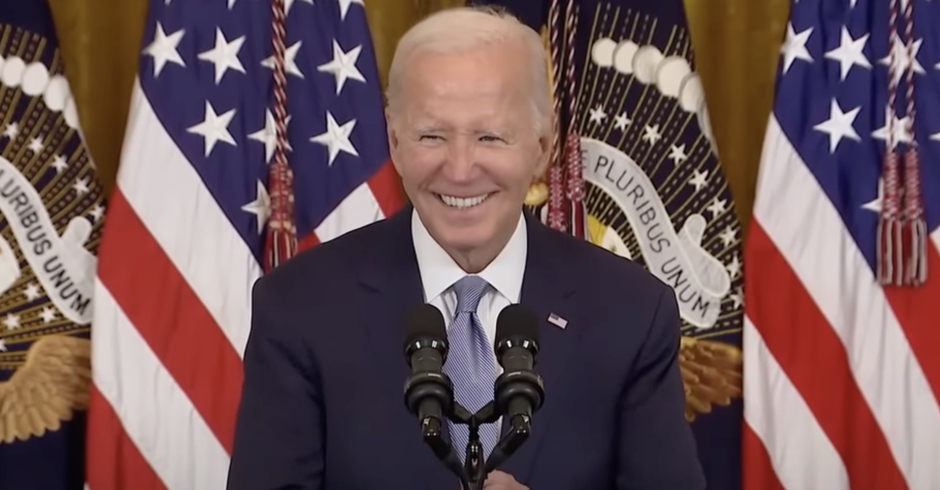LGBTQ Leadership: Gone The Way Of America’s Automakers
Remember the Big Four Automakers? Who are now the Big Three Automakers? Maybe soon the Big Two Automakers, now that GM has declared bankruptcy? They had their glory days, but failed to see the coming change, spent too much time and money on misguided efforts, and ultimately lost relevance, credibility and the support of their customers. They grew too big, became loath to change, and are dying a slow death. The automobile will live on, but those companies that drove it into the twenty-first century, and themselves into bankruptcy, may not.
Just as the automobile itself was truly a vehicle for social change during much of the twentieth century, so were the Big Four. Not the automakers, but the main LGBTQ activist organizations: Human Rights Campaign (HRC), American Civil Liberties Union (ACLU), Gay and Lesbian Alliance Against Defamation (GLAAD), and the National Gay and Lesbian Task Force (NGLTF). The LGBTQ community now has grown up strong, thanks to our leaders, the Big Four. And I say thank you to the The Task Force, the oldest LGBTQ activist organization. Thank you to HRC. Thank you to the ACLU. And thank you to GLAAD. I say thank you, and I say, goodbye.
Now, for the first time, the LGBTQ community is in a position of power. We are winning marriage equality, slowly but surely. Our goals are well-defined. They include passage of the Matthew Shepard Hate Crimes Bill, repeal of Don’t Ask, Don’t Tell (DADT), passage of the Employee Non-Discrimination Act (ENDA), and repeal of the Defense of Marriage Act (DOMA), as well as full marriage equality in all 50 states, all territories, and in Washington, D.C. We’ve won marriage equality in six states, hopefully seven (New York) before month’s end. And yet, despite a clearer path and major successes, despite increasing public attention on our issues and rising public support, despite a Democratic Congress and Democratic President, the ire and anger within our community is at a level not seen, many would say, since Stonewall. And the big difference now, the sign that we’ve achieved critical mass: the anger is directed at our allies. Why? Because, when you’re so close to achieving your goals, when you succeed despite the efforts of your leaders, and sometimes fail because of them, it’s clear you need new ones.
The Big Four did their job. They drove us to the twenty-first century. But they didn’t push themselves into it. Collectively, like the American automakers, they are old, outdated, ineffective, over-lapping behemoths whose lack of achievement demand they either declare bankruptcy, then refocus on their core competencies and truly re-create themselves, or turn over the wheel to the new leaders of our community: national grassroots organizations like Join the Impact, and local ones, like Mass Equality, Equality Maine, and One Iowa.
These are the groups that are able to mobilize hundreds of thousands, to get the attention of the media and voters, focus our energy and our message more efficiently, more effectively, without concern for the ways of the past, and without concern for their boards of directors. These groups are inter-dependent, act quickly, and can attack an issue from many different angles, because they’re down in the trenches and accessible. They aren’t thinking of themselves as leaders, but as partners, forging new ground. And they’re successful because they care more about our cause than about their corporate boards and sponsors, if they even have any.
Contrast them with the old guard, the Big Four. The Task Force’s main focus is developing and educating at the grassroots level. But they have fourteen different focuses and address too many tangential issues that have little to do with the success of our mission. For example, the murder of Dr. George Tiller. An atrocity, to be sure. But it has little to do with DADT, ENDA, DOMA, or, even, the Hate Crimes bill. And yet, the Task Force was quick to release a statement condemning it. Why? How much energy and time was spent on that issue, especially when three days earlier they had just begun their Twitter social media effort. Why has it taken them so long to begin to harness social media?
Or the Human Rights Campaign, which focuses on thirteen different issues. Which actually has had to start sending out emails that read “What has HRC done for me lately?”. Which, recently, has been forced into the position of denying a close relationship with the White House and Congress, when it should be touting its ability to access and to partner with government on planning and executing strategy.
GLAAD, the Gay and Lesbian Alliance Against Defamation, has done little to attack the Right Wing or to change the tone and perception of anti-gay Conservatives. How can I say this? Their websites do not even mention extreme Right-Wing blogger Michelle Malkin, barely mention Maggie Gallagher, President of the National Organization For Marriage, and only once mention Michael Savage, whose views are so outrageous he was actually banned from entering Great Britain. Can you name any three people in the media who have had more to do with defamation of the LGBTQ community?
The ACLU, which is not solely an LGBTQ-focused organization, has had its share of successes and failures, but overlaps many efforts and suffers an overextended focus.
And now, we have countless LGBTQ activists and organizations. Hundreds of dedicated bloggers. All acting independently. All acting on their own agenda. Most, if not all, looking for attention and funding. Most, if not all, overlapping efforts. Our diversity, which has always been our greatest strength, is now threatening to become our greatest weakness.
Here’s what needs to happen:
Organizations like HRC, GLAAD, the ACLU, and the Task Force need to look at themselves and strip down to their most basic assets. Be the support services for legal, educational, media, and lobbying national issues. Embrace all the twenty-first century has to offer, starting with social media opportunities like Twitter and Facebook, YouTube and MeetUp. And act as background, technical support and capacity-building for the grassroots groups that are in the trenches, truly making a difference.
The ACLU should attack all our legal issues and court cases that deal with discrimination, hate crimes, the military, and marriage equality.
GLAAD should be our media arm, but partner with the Task Force, the ACLU, and the HRC. Let’s get our messaging clear and into the right media outlets.
The Task Force should focus only on educating grassroots organizations.
Finally, the HRC, with new, better leadership, should be our representatives to government. They should be lobbying and creating legislative strategy to ensure successful outcomes on DADT, ENDA, DOMA, and the Hate Crimes Bill.
The Boards of Directors and CEOs of the Big Four should be in regular contact. The CEO of The Task Force should sit on the Board of HRC. The ACLU’s CEO should sit on the Board of GLAAD, and so on.
It’s time the Big Four start working together. End whatever old animosities they harbor, for the good of the community. Step back, give their power to the grassroots. The LGBTQ movement has once again become a grassroots movement. We no longer need the old guard, the Big Four. But it would be nice to have them, if they can learn to adapt. If not, we’ll be happy to remember them fondly. Like General Motors.

Enjoy this piece?
… then let us make a small request. The New Civil Rights Movement depends on readers like you to meet our ongoing expenses and continue producing quality progressive journalism. Three Silicon Valley giants consume 70 percent of all online advertising dollars, so we need your help to continue doing what we do.
NCRM is independent. You won’t find mainstream media bias here. From unflinching coverage of religious extremism, to spotlighting efforts to roll back our rights, NCRM continues to speak truth to power. America needs independent voices like NCRM to be sure no one is forgotten.
Every reader contribution, whatever the amount, makes a tremendous difference. Help ensure NCRM remains independent long into the future. Support progressive journalism with a one-time contribution to NCRM, or click here to become a subscriber. Thank you. Click here to donate by check.
 |





















